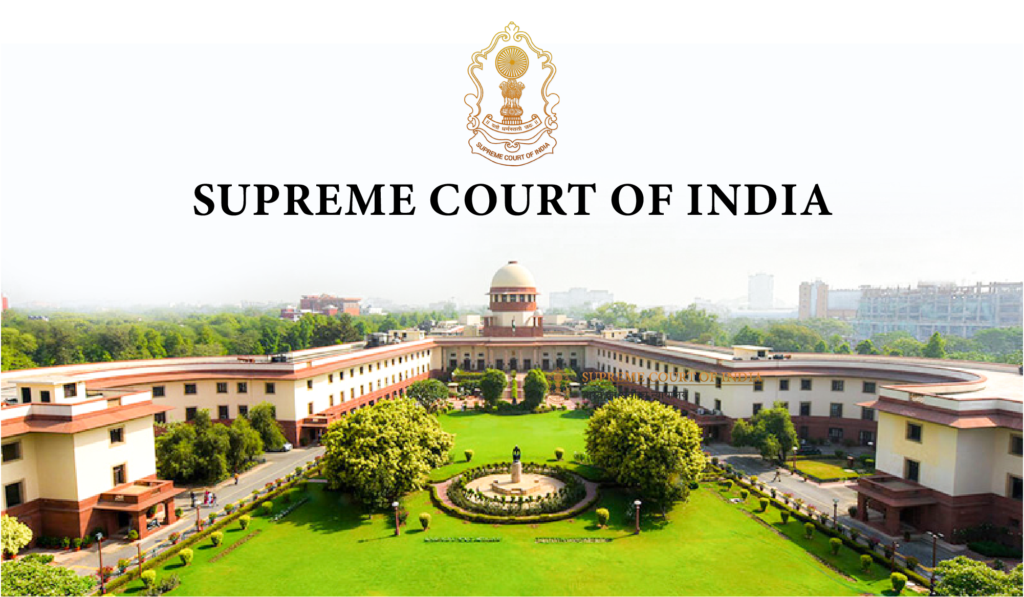In a landmark judgment dated September 13, 2013, the Supreme Court of India ruled in favour of the voters’ fundamental right to be informed about the backgrounds of electoral candidates, underscoring the importance of transparency in democratic processes. The case, Resurgence India vs. Election Commission of India, fastened the responsibilities of candidates to provide comprehensive details in their affidavits and reinforced the duty of Returning Officers to enforce this mandate. The ruling is a major step toward fostering accountability and informed decision-making in elections mandating full transparency from Election Candidates and affirming that incomplete affidavits should lead to the rejection of a candidate’s nomination.
Background of the Case which Mandates Full Transparency from Election Candidates
The petition was filed by Resurgence India, a non-governmental organization, seeking a writ of mandamus to ensure that candidates’ affidavits accompanying their nomination papers are complete and transparent. The organization highlighted the frequent discrepancies in candidate affidavits observed during the 2007 Punjab Assembly elections, where many candidates left critical fields blank, depriving voters of essential information.
Resurgence India argued that incomplete affidavits are contrary to the spirit of democracy, as they hinder the voters’ right to make informed choices. They contended that the Election Commission should be authorized to reject nomination papers with incomplete affidavits to uphold the “right to know,” which the court affirmed as a fundamental right embedded within Article 19(1)(a) of the Indian Constitution in order to Mandate Full Transparency from Election Candidates.

Key Points of the Judgment
The Supreme Court’s ruling made clear several fundamental aspects of a citizen’s right to know about their representatives and the obligation of candidates to disclose relevant personal information in a transparent and accountable manner. Key points from the judgment include:
- Voter’s Right to Know: The court emphasized that the right of citizens to be informed about the background of their candidates is an integral part of the freedom of speech and expression, as protected under Article 19(1)(a). This “right to know” empowers voters to make educated choices at the ballot box, which is essential to the democratic process.
- Responsibility of Candidates: According to Section 33A of the Representation of the People Act, 1951, candidates are obligated to disclose information regarding their criminal records, assets, liabilities, and educational qualifications. The judgment mandates that candidates must mark any irrelevant fields in the affidavit explicitly as “NIL” or “Not Applicable,” rather than leaving them blank. Failure to comply would result in the rejection of the nomination paper by the Returning Officer.
- Role of Returning Officers: The judgment assigns Returning Officers a pivotal role in scrutinizing nomination papers. If a candidate fails to provide complete information, even after a reminder, the Returning Officer is empowered to reject the nomination. The court clarified that this power should be exercised judiciously to prevent misuse, ensuring that candidates cannot bypass scrutiny by submitting incomplete affidavits.
- Legal Consequences for False Information: The court also made reference to Section 125A of the Representation of the People Act, which holds candidates accountable for providing false information. However, in cases where a nomination is already rejected due to incomplete information, further prosecution is unnecessary, as the rejection itself serves as a deterrent.
- Reaffirmation of Previous Judgments: The decision draws from previous rulings in Union of India vs. Association for Democratic Reforms (2002) and People’s Union for Civil Liberties vs. Union of India (2003), which recognized the voters’ right to access candidates’ information as fundamental to free and fair elections. The court noted that accepting affidavits with blank entries would dilute the purpose of these landmark rulings.
Implications of the Judgment
The Supreme Court’s judgment has wide-reaching implications for Indian democracy:
- Enhanced Voter Awareness: By ensuring that candidates disclose crucial personal information, the ruling empowers voters to make informed choices. This decision enhances transparency and ensures that voters have a clearer picture of who is vying to represent them.
- Increased Accountability: Candidates are now accountable to voters for providing accurate and comprehensive information. Failure to comply with affidavit requirements could cost candidates their nominations, prompting them to adhere more closely to the rules.
- Strengthened Electoral Integrity: The mandate for Returning Officers to enforce stringent checks on affidavits prevents manipulation and enhances the integrity of the electoral process. The ruling upholds the principle that democracy thrives only when citizens are informed participants.
- Potential Deterrent to Criminal Elements: The decision may discourage candidates with criminal backgrounds or significant liabilities from contesting elections by mandating transparencyfrom Election Candidates. This could lead to a more ethically sound pool of candidates.
The Supreme Court’s ruling in Resurgence India vs. Election Commission of India is a defining moment in India’s electoral jurisprudence. It reinforces the voter’s right to make an informed choice, elevates the standards of accountability for candidates, and strengthens the democratic framework by ensuring transparency. As the judgment underscores, the essence of democracy is preserved when the electorate is informed and empowered. This decision thus paves the way for a more transparent, fair, and democratic electoral process in India.
Disclosure of Criminal Records Compulsory in Media
In a move to increase transparency and uphold the integrity of India’s electoral process, the Election Commission of India (ECI), in compliance with Supreme Court directives, mandates that all election candidates with criminal records disclose their pending cases publicly through media. Under the Representation of the People Act, 1951, candidates are now required to publish affidavits detailing any criminal charges pending against them. This directive applies even to cases where formal charges have been framed, ensuring that voters are informed of the candidates’ backgrounds.
What the Mandate Requires
Under Section 33A of the Act, candidates with criminal records must publish details of their criminal cases in at least three widely circulated newspapers or prominent TV channels covering their constituency. This includes the nature of each case, the court where it is pending, and its status. The mandate is designed to make crucial information readily accessible to the public, empowering voters to make informed decisions based on the candidate’s history.
Timeline and Publication Guidelines
The ECI stipulates that these details be published a minimum of three times within the campaign period before the election day. The timing of these disclosures aims to ensure that voters are well-informed before they head to the polls. Additionally, all publication expenses must be borne by the candidates themselves, emphasizing their accountability to the public.
Consequences for Non-Compliance
Strict monitoring by the ECI ensures adherence to these guidelines, and non-compliance may result in disqualification of the candidate or legal actions, depending on the severity of the omission. This measure reflects the ECI’s commitment to fostering a transparent electoral environment and discouraging candidates with a history of criminal conduct from entering public office unchallenged.
A Step Towards Informed Voting
This requirement aligns with the Supreme Court’s vision of promoting clean governance and public trust in elected officials. By granting citizens access to candidates’ criminal records, the mandate empowers voters to elect leaders with integrity. The transparency initiative is expected to reduce instances of candidates concealing criminal backgrounds and foster a more ethical political landscape.
This directive underlines the importance of transparency in a democratic setup and reinforces the right of voters to be well-informed. With this policy in place, India takes a significant step towards a cleaner and more accountable electoral process.






